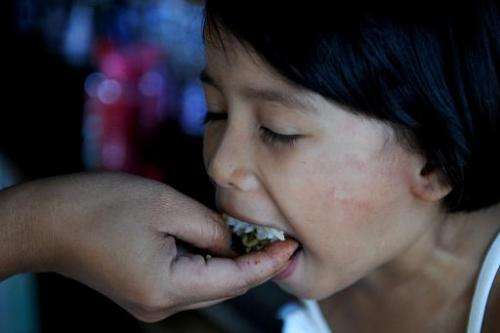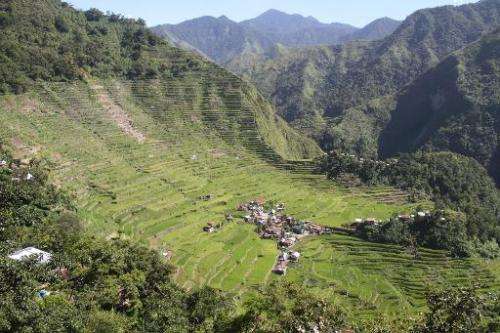First GMO rice to be launched in Philippines in 2016

The first genetically-modified rice to be commercially available could be approved for production in the Philippines in two to three years, researchers said Tuesday, despite strong opposition from environmental groups.
Officers of both the International Rice Research Institute (IRRI) and the Philippine government's agriculture department said the newly-developed "golden rice" had completed field trials, despite vandalism at one test field.
"Golden rice is coming. That is in the pipeline and a lot of the principal development and research has been completed," said Achim Dobermann, deputy director-general of IRRI.
"At the moment, there is no GM (genetically-modified) rice officially released in any country," he stressed.
He said China was working on a pest-resistant variety of GM rice, but it was unknown when they would release it commercially.
Dobermann said that depending on the length of the approval process, it could take a minimum of "two to three years" before seeds are ready to be distributed to farmers.
Field trials of the rice, a genetically-modified organism (GMO), have been completed in the Philippines and it is now set to undergo tests to determine if it is safe to consume and propagate, said Antonio Alfonso, coordinator of the Agriculture Department's biotechnology programme.
This is despite an attack by activists on a test field in the Philippines in August that destroyed the golden rice planted there.

Alfonso said it was only one of several golden rice fields, and they were able to complete their tests.
Golden rice has been genetically modified to produce vitamin A, which is lacking in the diets of many people in developing countries, leading to weakened immune systems and blindness, and often resulting in death, IRRI said.
However many environmental groups oppose GMOs, saying they will have harmful side effects which will irreversibly spread even to non-GMO crops.
The Southeast Asia office of environmental group Greenpeace condemned the efforts to promote golden rice.
"There are already existing solutions and programmes being implemented by the Philippine government to address vitamin A deficiency in the country and these have been in place and are continuing to be effective," Greenpeace campaigner Daniel Ocampo said in a statement.
Dobermann said many of the alternatives are too expensive or impractical for poor people, who often eat mostly rice.
Greenpeace previously obtained a court ruling to suspend field trials of GMO eggplant in the Philippines.
© 2013 AFP
















